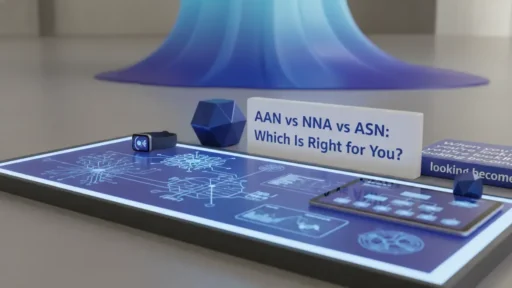POA has multiple meanings depending on context. The most common interpretation is Power of Attorney—a legal document letting someone act on your behalf. But POA also stands for Plan of Action, Proof of Address, Price on Application, and several other terms depending on the industry.
Here’s what POA means in different contexts and how to figure out which definition applies.
Power of Attorney (Legal)
Power of Attorney is the most common meaning of POA, especially in legal and estate planning contexts.
A Power of Attorney is a legal document where you (the principal) authorize someone else (the agent or attorney-in-fact) to make decisions and take actions on your behalf.
Types of Power of Attorney:
General POA – Gives broad authority over finances, property, and legal matters
Limited POA – Grants authority for specific tasks only (like selling a property or managing one account)
Durable POA – Remains in effect if you become incapacitated
Healthcare POA – Authorizes medical decisions on your behalf
When you’ll see this meaning:
- Estate planning documents
- Legal paperwork
- Healthcare directives
- Real estate transactions
- Business agreements
Why it matters: Powers of Attorney must be properly executed (usually notarized and witnessed) to be legally valid. They end when you die, revoke them, or when the specified task is completed.
Plan of Action (Business)
In business settings, Plan of Action (POA) refers to a strategic document outlining steps to achieve specific goals or solve problems.
What a Plan of Action includes:
- Specific steps or tasks
- Timeline and deadlines
- Assigned responsibilities
- Required resources
- Success metrics
When you’ll see this meaning:
- Business meetings
- Project management
- Performance improvement plans
- Strategic planning documents
- Team coordination
Example: “We need a POA to address declining sales in Q4” means the team needs a strategic plan with concrete steps, not a legal document.
Proof of Address
Proof of Address (POA) is documentation that verifies where you live, required by banks, government agencies, and service providers.
Acceptable Proof of Address documents:
- Utility bills (electric, gas, water)
- Bank or credit card statements
- Lease agreement or mortgage statement
- Government correspondence (tax documents, DMV notices)
- Insurance policies
When you’ll see this meaning:
- Opening bank accounts
- Applying for loans or credit cards
- Setting up utilities
- Government applications
- Identity verification processes
Why it matters: Financial institutions need POA to comply with Know Your Customer (KYC) regulations and prevent fraud. Most require documents dated within the last 3-6 months.
Point of Action (Project Management)
In project management, Point of Action refers to a specific task or decision point assigned during meetings.
Characteristics of Points of Action:
- Assigned to a specific person
- Has a target completion date
- Represents an actionable item (not just discussion)
- Drives project forward
When you’ll see this meaning:
- Meeting minutes
- Project management software
- Team coordination
- Action item lists
Example: “POA: Sarah will send the revised proposal by Friday” identifies a specific task, owner, and deadline.
Price on Application (Real Estate)
In real estate listings, Price on Application (POA) means the seller isn’t publicly disclosing the property price—you must contact the agent to learn what they’re asking.
Why sellers use POA pricing:
- High-value properties where pricing is sensitive
- Competitive markets where sellers don’t want to reveal their position
- Properties with unique characteristics hard to price comparably
- To qualify serious buyers before sharing pricing
When you’ll see this meaning:
- Luxury real estate listings
- Unique or commercial properties
- Competitive property markets
- Auction properties
What it means for buyers: You’ll need to contact the listing agent directly to get pricing information. This also lets sellers gauge your interest level before sharing details.
Purchase Order Agreement (Business/Real Estate)
Purchase Order Agreement can refer to different contracts depending on the industry:
In business: A formal agreement to purchase goods or services at specified terms, quantities, and prices.
In real estate: Some regions use POA to mean purchase agreements or offers to buy property (though “Purchase Agreement” or “Offer” are more common).
When you’ll see this meaning:
- Business procurement
- Supply chain management
- Some regional real estate markets
- Commercial transactions
This is a less common use of the POA acronym and often appears spelled out rather than abbreviated to avoid confusion.
How to Figure Out Which POA Meaning Applies
Context clues help you determine the correct interpretation:
Legal documents = Power of Attorney If you’re reading contracts, estate planning documents, or anything requiring notarization, POA almost certainly means Power of Attorney.
Business meetings = Plan of Action In strategic planning, project management, or business improvement discussions, POA typically means Plan of Action.
Financial applications = Proof of Address When opening accounts or applying for credit, POA requests mean Proof of Address documentation.
Real estate listings = Price on Application If you see POA in a property listing without a price, it means you need to contact the agent for pricing.
Project management = Point of Action In meeting minutes or task lists, POA refers to specific action items assigned to team members.
When in doubt, ask. If the context doesn’t make the meaning clear, request clarification. Assuming the wrong definition of POA can lead to confusion or mistakes.
POA in Specialized Contexts
Beyond the common meanings, POA appears in specialized fields:
Technology: Proof of Authentication – security verification methods
Military: Position of Attack or Place of Assignment
Government: Port of Arrival (immigration/customs)
Gaming: Player-Owned Area
These specialized uses are less common but appear in specific industries. Context and industry knowledge clarify which definition applies.
Why Context Matters
Why Context Matters
POA is what linguists call a “contextonym”—a term whose meaning depends entirely on context. Using POA without context creates confusion:
Unclear: “I need to get a POA” Clear: “I need to get a Power of Attorney notarized before my surgery”
Unclear: “Submit your POA by Friday” Clear: “Submit your Proof of Address (utility bill or bank statement) by Friday”
In professional communication, spell out the full term the first time you use it, then use the abbreviation afterward:
“We’ll draft a Power of Attorney (POA) for your father’s healthcare decisions. Once the POA is signed and notarized, your brother can make medical choices if needed.”
This is especially important in business settings where multiple meanings exist. For instance, staffing agencies handle Powers of Attorney for employment authorization while also creating Plans of Action for recruitment strategies—using “POA” without clarification could confuse which document type is needed.
Getting Your Power of Attorney Notarized
If you need a legal Power of Attorney, most states require notarization for it to be valid.
BlueNotary offers convenient online notarization for Powers of Attorney:
- Complete the process in 10-15 minutes from home
- No travel to banks or notary offices
- Available evenings and weekends
- Legal in most states
- Secure and legally binding
The notary verifies your identity, watches you sign via video call, and applies their digital seal—all meeting state requirements for valid Powers of Attorney.
POA Definition Conclusions
POA has multiple meanings—Power of Attorney (legal), Plan of Action (business), Proof of Address (financial), Price on Application (real estate), Point of Action (project management), and Purchase Order Agreement (business).
Context determines which meaning applies. Legal documents mean Power of Attorney. Business meetings mean Plan of Action. Bank applications mean Proof of Address. Real estate listings mean Price on Application.
When communicating, spell out the full term first to avoid confusion. When you’re unsure which meaning someone intends, ask for clarification rather than guessing.
FAQ
What does POA stand for?
POA most commonly stands for Power of Attorney (legal document), Plan of Action (business strategy), or Proof of Address (residency verification). The meaning depends on context—legal situations mean Power of Attorney, business contexts mean Plan of Action, and financial applications mean Proof of Address.
What is a POA in legal terms?
In legal contexts, POA stands for Power of Attorney—a document authorizing someone to act on your behalf for financial, legal, or healthcare decisions. Powers of Attorney must be notarized in most states and can be general (broad authority) or limited (specific tasks only).
What does POA mean in business?
In business, POA typically means Plan of Action—a strategic document outlining specific steps, timelines, and responsibilities to achieve goals or solve problems. Teams use Plans of Action for project management and coordinating efforts toward objectives.
What is POA when applying for a bank account?
When banks request POA during account opening, they mean Proof of Address—documentation verifying where you live, like a utility bill, bank statement, or lease agreement. This helps banks comply with regulations and prevent fraud.
Why do some real estate listings say POA?
In real estate, POA stands for Price on Application, meaning the seller isn’t publicly disclosing the price. Buyers must contact the listing agent directly to learn the asking price. This is common for luxury properties or competitive markets.
Do all Powers of Attorney need to be notarized?
Most states require Powers of Attorney to be notarized for legal validity. Some also require witness signatures. Requirements vary by state and POA type (financial vs. healthcare). Check your state’s specific requirements or consult an attorney.








